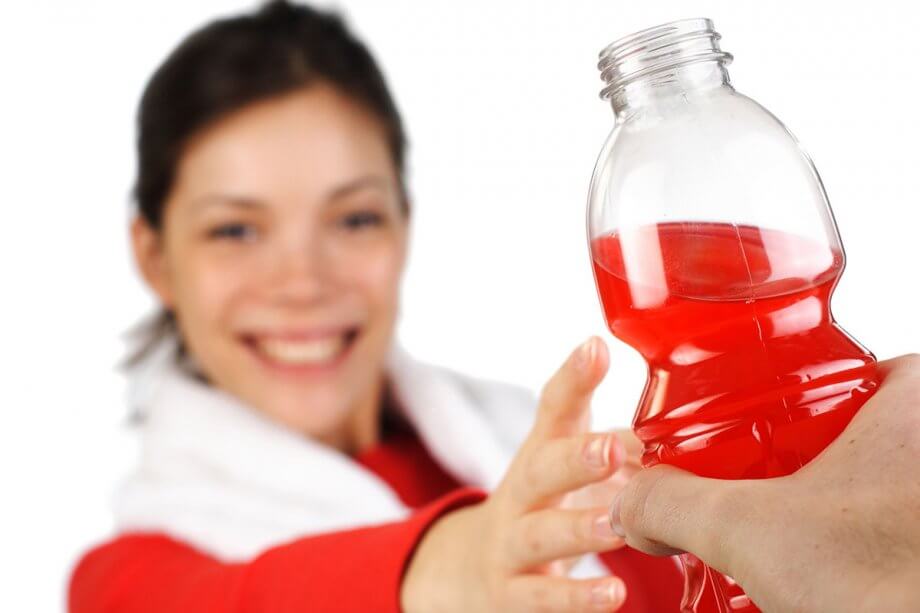A sports-type drink was long available in the United Kingdom to boost the energy of people who were ill, but the first true sports drink was Gatorade, invented at the University of Florida in 1965. The Gators’ football coach noticed that his players tended to lose weight, were at heightened risk for heat stroke, and did not urinate regularly despite consuming a great deal of water. University doctors determined that these issues were due to a severe loss of salt, sugar, and electrolytes due to sweating on the field. The next year, Gatorade was born, delivering an incredible season to the Gators and sparking an entire industry.
Today, many people from all walks of life enjoy sports drinks not only to replenish themselves after strenuous activity, but also as a replacement for sodas, sipping them throughout the day. However, sports drinks were never intended to be consumed regularly, and they can cause significant damage to the teeth. Here is what you should know about how sports drinks affect your dental health.
Sugars
Low-sugar alternatives are now available, but part of the point of sports drinks was to replace sugar in athletes’ bodies. Many original formula sports drinks are packed with sugar—even more so than soft drinks in many cases. Sugar is well-known for its ability to feed the bacteria that attach to tooth enamel, raising the risk for cavities.
Acids
Most sports drinks are highly acidic. These acids give oral bacteria, fed by the sugars in the drink, a head start on destroying tooth enamel. After just five days of regular consumption of sports drinks, your tooth enamel could start to erode.
Other Health Risks
Health conditions such as heart disease and diabetes have been linked with sports drinks as well as soft drinks. These illnesses increase the likelihood of oral health issues such as gum disease and tooth decay. In tandem with the risks to oral health caused by the drinks themselves, this can lead to a spiral of worsening dental damage.
Minimizing Damage
Sports drinks are extremely good at doing what they were designed to do—maintaining hydration and balancing electrolytes during and immediately after an intense workout. Electrolytes are essential to the proper functioning of many systems throughout the body, and allowing them to drop too low can be physically dangerous.
The problem occurs when people choose to consume sports drinks on a daily basis, regardless of activity level. They have few, if any, benefits over the sodas they typically replace, and cannot replace plain, clear water for daily hydration. Restrict your sports drink consumption to the times when you truly need electrolytes and energy.
When you do indulge in a sports drink, rinse your mouth with plain water to remove the remaining liquid. If you cannot rinse, chew sugar-free gum or suck on sugarless hard candy instead. This encourages saliva production, creating a natural mouth rinse.
Avoid brushing your teeth for an hour after consuming a sports drink. The act of brushing drags acids across the teeth, potentially causing further damage to the enamel. Let water and saliva rinse your mouth before you brush.
There is nothing inherently evil about sports drinks, but they should be treated like soft drinks. Reduce your consumption, choose a low-sugar option when available, and rinse your mouth afterward. Treating sports drinks as an occasional indulgence while primarily quenching your thirst with water can go a long way toward protecting your teeth.
Ready to Get Started?
If you’re in New Jersey and ready to start your child’s oral health journey with an experienced, compassionate pediatric dental office, contact Tender Smiles 4 Kids at 732-625-8080 (Freehold), 732-249-1010 (North Brunswick), 732-549-3773 (Edison), or 908-245-5556 (Roselle) to schedule your child’s first appointment.

